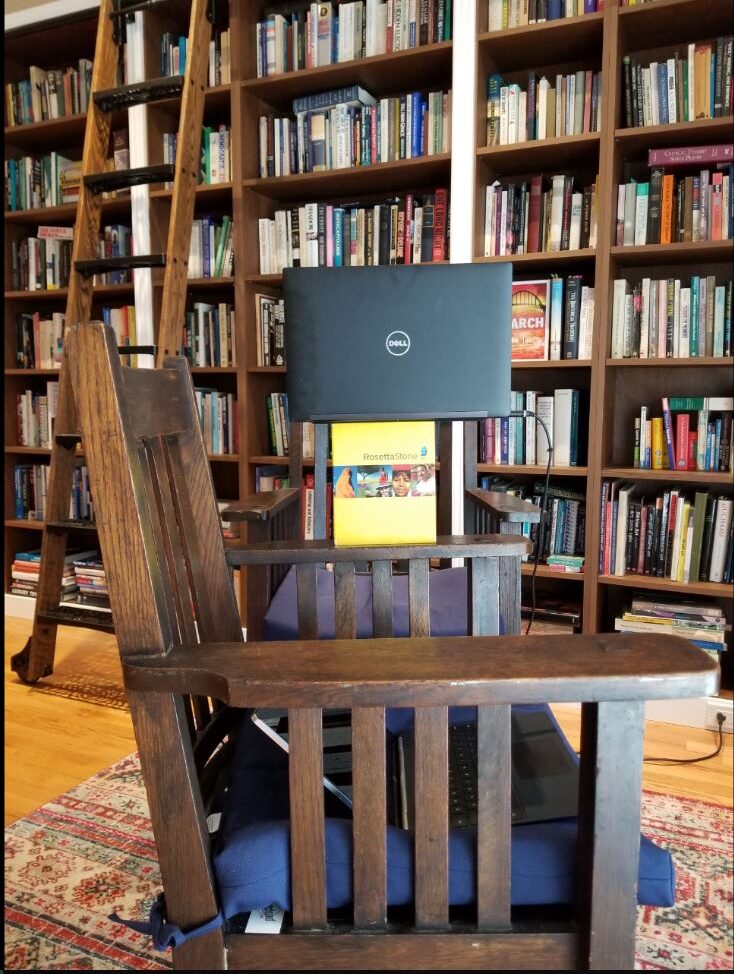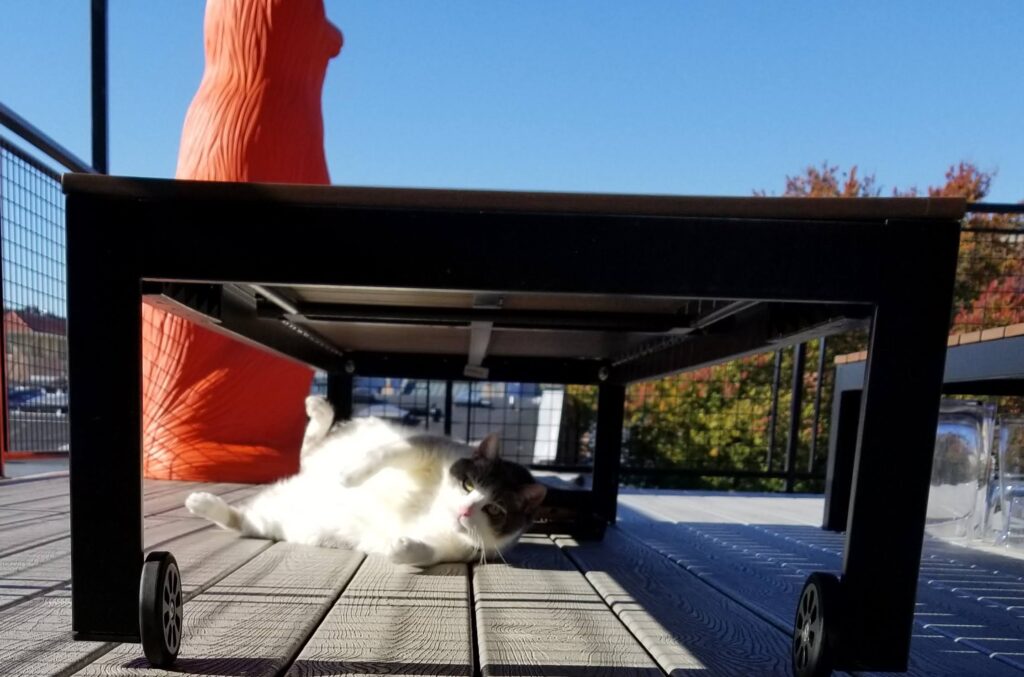“Never be daunted. Secret of my success. Never been daunted. Never been daunted in public.”
Bill to Jake in The Sun Also Rises, Ernest Hemingway
I’m writing this sitting in the same chair in which I’ve been sitting for a year. You may be reading this in the same chair in which you’ve been sitting for a year. We are all ready to sit in new chairs.
Some of you are leaving GW having not been on campus since last March. Others have been attending GW for a year without ever having been there. Most of you have been to GW for a time while at GW, and will be back on campus again soon; Foggy Bottom the departure and arrival lounge between views through Zoom windows of classmates, professors and college.
We have seen quite a year from our chairs. An insurrection, a contentious election, protests and marches (which got some of us out of our chairs), too many killings and mass shootings to count, a global pandemic, and more. All while the planet warms, wars rage, and despair takes too many lives.
Through it all you attended classes, did readings (more or less), wrote papers, took exams, and found ways to participate in student organizations and connect with classmates. Thanks to ZoomU we met some great pets.
It can feel hard to reconcile events that feel out of control and that demand our complete and immediate attention on one hand, with the normalcy of internships, quizzes, and the day-to-dayness of it all on the other. It can be harder still to feel optimistic, to feel as if there is something worth salvaging and that you can help salvage it.
But if we do not embrace our daily lives and optimistically face the future, then what?
If your efforts – if our collective efforts – won’t work, what will? If nothing will work, do we throw in the towel? Give up the promise of justice, let the planet to drown, and leave everyone to whatever fate the roll of the dice has in store for them?
Of course not.
You are part of the SMPA community because you choose to be optimistic. You study journalism because you believe a good story well told can change the world. You study political communication because you believe that advocacy is central to free people reasoning together. You write and you advocate because you believe those things matter and that even in the face of a year like the one we just had, we can make the world a better place.
Like you, I believe in the power of stories and the promise of politics, however tragic the stories and flawed our politics may be. And I believe in you.
Like journalism and politics, teaching is an optimistic pursuit. Your professors believe we can help you find the words to change the world. The moral arc of the universe can feel longer on some days than others – endless pandemic Tuesday long. But anyone who writes, advocates, and teaches believes that no matter how long the moral arc of the universe, it bends toward justice a little more quickly if we are smart about how we push on it.
Optimism is premised on the status quo not being good enough. If everything is already as good as it’s going to get, why bother with journalism or advocacy? Our shared optimism means we learn about yesterday, are honest about today, envision a better tomorrow, and work to make that tomorrow happen. Headlines are the collective results of our collective lives. We can choose to live our lives well, honestly, and hopefully. We can choose to work to make our hopes a reality. We can choose which headlines we want to read, and work to write them.
As Richard Rorty wrote in Achieving Our Country, “We should face up to the unpleasant truths about ourselves, but we should not take those truths to be the last word about our chances for happiness, or about our national character. Our national character is still in the making.”
As you head into whatever comes next – back at GW, a job, graduate school, a well deserved very long nap – remember your optimism. Carry it with you. Cling fast to your convictions. Headlines, student loans, and friends’ LinkedIn updates can conspire to pull you off course. It’s easy to lose yourself in the noise and the bills that have to be paid. It’s easy to professionally and emotionally drift. Keeping a strong hold of your foundation can help.
From time to time I am reminded of the story of the venture capitalist and the fisherman. To celebrate selling a company, a venture capitalist rents a place on a beach. Every morning she sees a guy who lives down the beach row his boat out into the waves. Every afternoon he rows back with whatever he caught, and sells it in the market. Every evening he builds a fire, grills a fish he didn’t sell, has a beer and watches the sun set. After a few days of watching this, the venture capitalist approaches the fisherman and says “I can help.” “Thank you,” replies the fisherman, “but I don’t understand what I need help with.” “Everyday I see you go fishing and sell what you catch. I can help.” “I’m still not sure I understand, help with what?” “I build and sell companies, I can help you buy more boats, catch and sell more fish.” “I’m still confused,” confessed the fisherman, “how does that help me?” “I can help you become successful. Imagine you had a lot more money because of your growing enterprise. If you had all the money you wanted, what would you do with it?” The fisherman paused to think. “I would probably buy a little place on the beach, go fishing every day, and every evening sit by the ocean and watch the sun set.”
Regularly remind yourself what you set out to do, and set about doing it. You did not choose to study journalism or political communication because you want fame and fortune. You chose those fields because you want to make the moral arc of the universe bend toward justice a little faster. You’re here because you believe you can change the world. So go change it.
It’s time to get out of our chairs and back into the fray.
Keep the faith, keep going, and keep in touch.
– Loge
#SMPAProud




Love that story
…and who wants to follow a pessimist. There are so many reasons optimism wins. How many pessimistic entrepreneurs build great companies, innovate, find new paradigms and attract great employees?